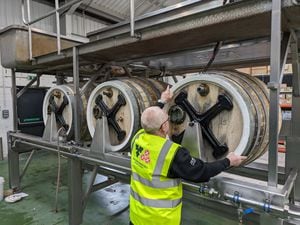Profit warnings in the West Midlands hit historic high triggered by Covid-19
Profit warnings issued by West Midlands-listed businesses reached a record-breaking high in the first three months of 2020 – higher than any previous quarter in the last 20 years, according to EY’s latest Profit Warnings report.

Twenty-one profit warnings were recorded by EY between January 1 and March 31 in the region, compared to just nine for the same period in 2019, representing an increase of 133 per cent.
Unsurprisingly, the significant increase in warnings was attributed to the Covid-19 crisis, which has temporarily paralysed many businesses, with very few sectors immune from its effects. In the West Midlands, profit warnings were spread across a wide range of sectors.
Dan Hurd, EY’s head of restructuring in the Midlands, said: “The sectors issuing the highest number of profit warnings were those most exposed to the impact of national lockdowns and in many cases were already showing signs of stress.
“Covid-19 has created new problems, but it has also accelerated existing structural change and exacerbated existing weaknesses. When lockdown lifts, it will undoubtedly ease some pressures, but these underlying issues will remain.”
More Covid-19 coverage:
About 300 profit warnings were issued by UK-listed businesses in the first quarter of the year, almost equal to the entire number issued in the whole of 2019 and five per cent higher than the total for 2018. Compared to the same period last year, warnings rose from 89, representing a 238 per cent year-on-year increase.
Although 77 per cent of profit warnings blamed Covid-19 in the first quarter of 2020, significant parts of UK plc were struggling before the pandemic. In January 2020, EY recorded warnings had increased by 43 per cent year-on-year, when compared to the same month last year.
By percentage of companies warning, FTSE travel and leisure was the most dramatically affected, with 70 per cent of the sector issuing a profit warning, followed by industrial materials and retailers. All but five of the 42 FTSE sectors EY tracks issued Covid-19 related warnings in quarter one.
Covid-19 is expected to deliver the biggest blow to UK GDP since the First World War. The economic forecasting group, EY ITEM Club, estimates that UK GDP will fall by 6.8 per cent in 2020, if the UK lockdown begins to lift at the end of May, and the UK experiences a slow ‘U’ shaped recovery without any major relapses.
EY expects the number of profit warnings to fall, but distress levels to rise – with echoes of 2008 to 2009 and the aftermath of the financial crisis. Notably, there were more insolvencies in 2009 than 2008. The report anticipates a significant increase in corporate insolvencies when the lockdown lifts.
Mr Hurd added: “We know from previous crises that one of the biggest tests comes when companies need to reflate balance sheets, restock inventory and depend on supply chains that have been similarly tested.
“This time, companies face a unique set of additional challenges as they work to safeguard business continuity and the health of employees and customers. It is wise for companies to take a slow and steady approach to restarting operations that allows for flexibility, so they can react to continued uncertainty for some time to come.”





